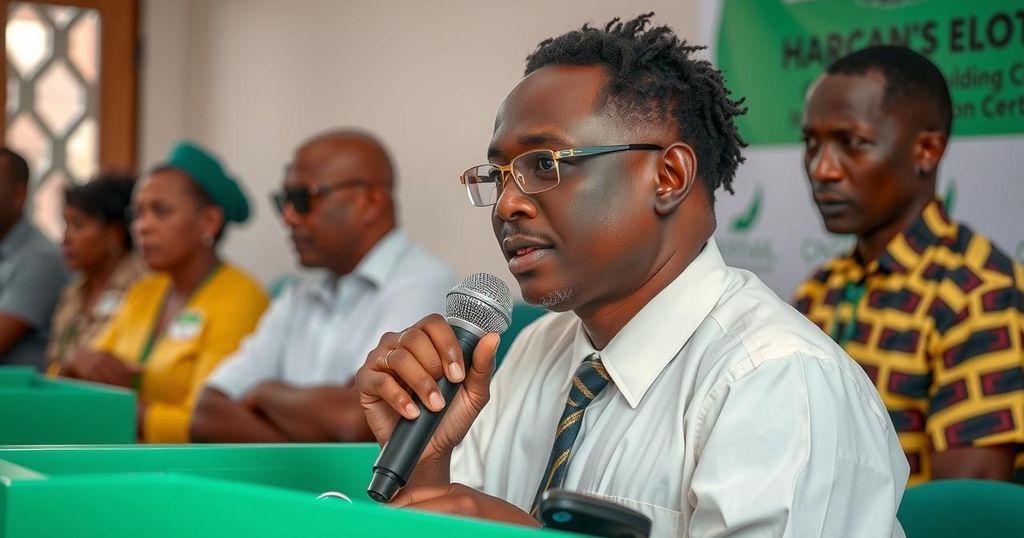Ghana’s Presidential Election: A Critical Decision Amid Economic Crisis

Ghana’s presidential election pits former president John Dramani Mahama against current vice president Mahamudu Bawumia amid severe economic distress. Voters face pressing issues such as inflation, rising poverty, and environmental crises stemming from illegal mining. With nearly 700,000 first-time voters, the election signifies a demand for change. Polls indicate Mahama may have a winning edge, but Bawumia remains a competitive challenger. The election results are anticipated to unfold on Election Day, with a possibility of runoff if no majority is achieved.
On Saturday, Ghanaians face a pivotal decision in their presidential election, opting either to reinstate John Dramani Mahama, the former president, or endorse his competitor, Mahamudu Bawumia, the current vice president. With Ghana’s economy grappling with inflation, rising debt, and increased living costs, the electorate’s grievances are evident. Mr. Mahama, ousted eight years ago, seeks redemption, while Mr. Bawumia aims to present decoupled ideas from his predecessor, Nana Akufo-Addo. Both candidates share a common background from the marginalized northern regions, with Mahama as a Christian and Bawumia as a Muslim.
The economic landscape over recent years has been tumultuous, characterized by a heavy reliance on borrowing that culminated in a significant debt crisis. Consequently, Ghana faced a dire economic predicament, resulting in inflation spikes and a poverty surge, displacing 850,000 citizens into poverty by 2022. Protests stemming from environmental concerns due to illegal mining activities illustrate the electorate’s restlessness, particularly among the youth, who comprise a substantial part of the electorate this year. Over 700,000 first-time voters are anticipated to participate, driven by the desire for change.
Ghana prides itself on being a stable democracy within an increasingly volatile West Africa, making it an attractive partner for various international leaders, including U.S. presidents. Nonetheless, despite relative peace, there are emerging concerns around security, particularly regarding the potential influx of militants from surrounding regions. While polls indicate that Mr. Mahama may have the upper hand in this election, Mr. Bawumia, who bears some responsibility for the current economic climate as vice president, still poses a formidable challenge. The election results are expected to be announced progressively after polls close, with potential for a runoff if no candidate garners a majority.
Ghana’s upcoming election is marked by widespread dissatisfaction related to its economic condition, informally dubbed the worst in a generation. As the country grapples with inflation, rising unemployment, and debt, voters are poised to select a leader who can catalyze economic recovery. The two major candidates, John Dramani Mahama and Mahamudu Bawumia, represent their respective political parties, the National Democratic Congress (N.D.C.) and the New Patriotic Party (N.P.P.). Their backgrounds and experiences will play a crucial role in shaping the electorate’s decision amidst the pressing issues at hand.
In conclusion, Ghana’s presidential election reflects a critical juncture in addressing the pressing economic challenges faced by the nation. Voters are keenly aware of the candidates’ past performance and proposed strategies for addressing inflation and poverty. With a significant turnout, particularly from the youth, this election not only signifies a decision on leadership but also a collective demand for accountability and change within the government’s approach to pressing societal issues.
Original Source: www.nytimes.com








